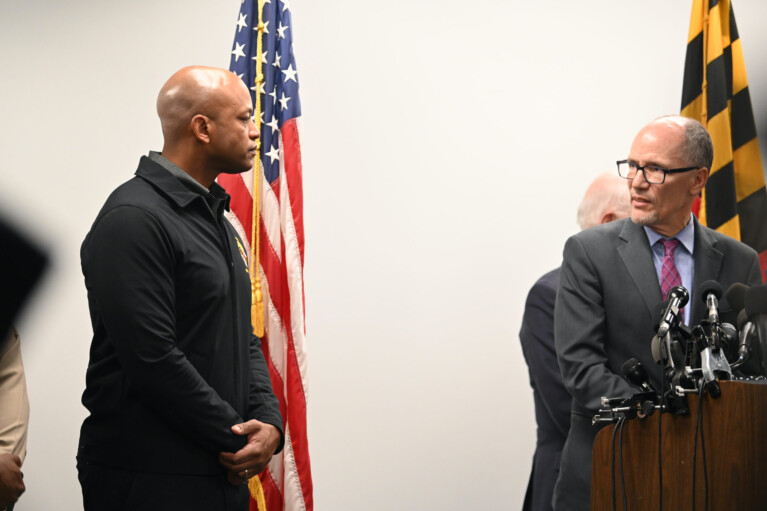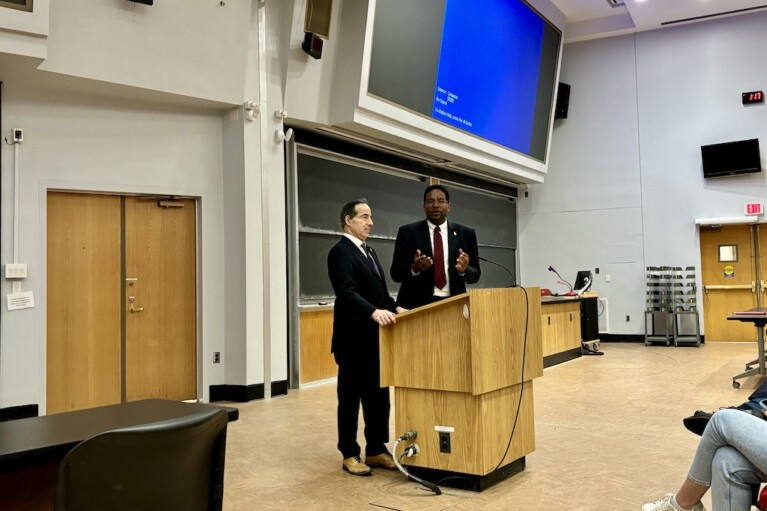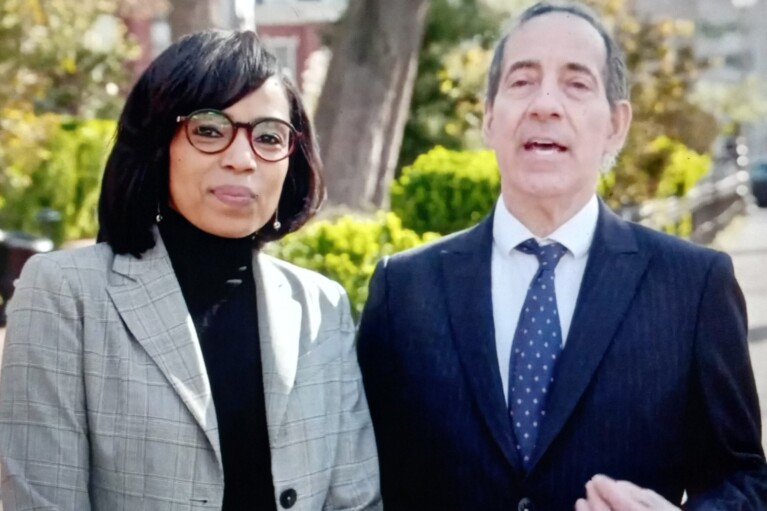
A top FBI official told members of a U.S. House panel on Thursday that the agency believes a single juvenile is behind most of the bomb threats made to more than 30 historically Black colleges and universities.
Ryan Young, executive assistant director of the Intelligence Branch at the FBI, said the bomb threats made to HBCUs and historically Black churches are the bureau’s top priority.
“We’ve treated this as domestic terrorism,” he said. “It’s meant to inflict harm within the African American population.”
Under questioning from Republican Rep. Clay Higgins of Louisiana, Young said the FBI believes that a majority of the bomb threats are from one juvenile, but declined to give any more information.
Higgins asked if it is correct that the FBI has identified one juvenile behind the threats. Young said “that is consistent with the message we’ve shared with both law enforcement and the historically Black colleges.”
The exchange came during a hearing of the House Oversight Committee, as lawmakers grilled officials from law enforcement agencies about why those making bomb threats made against Historically Black Colleges and Universities have not been caught.
“As the investigation is ongoing, I know that the FBI cannot answer any questions about the status of these specific cases,” said Rep. Jamie B. Raskin, a Maryland Democrat and chair of the Subcommittee on Civil Rights and Civil Liberties.
“But I would like to know how the FBI is coordinating with HBCUs and communities of color to address the terrifying rise in hate crimes and white supremacy in the U.S.”
This year alone, 36 HBCUs have been targeted with bomb threats, including Morgan State University, Bowie State University and Coppin State University in Maryland. The House and Senate on a bipartisan vote passed a resolution condemning the bomb threats made to HBCUs and several congressional hearings on the threats to minority institutions have been held.
Leaders of faith organizations and HBCUs detailed to the House Judiciary Subcommittee on Crime, Terrorism, and Homeland Security how their institutions and places of worship have been roiled by bomb threats and extremism.
Higgins said it was unacceptable that the FBI and Department of Justice have not made an arrest.
“The impact of the bomb threats, when you look at (the) historical aspect, that’s a level of fear that we should absolutely investigate in the most aggressive way possible,” he said.
A February report from NBC said the FBI was looking at a group of six juveniles as “persons of interest” in the threats. That report said the juveniles were “tech savvy” and able to disguise the source of the threats.
Student anxiety
Students from HBCUs also testified before lawmakers on the impact of dealing with bomb threats.
Emmanuel Ukot, the president of the Student Government Association at Xavier University of Louisiana, said many classmates were anxious following the bomb threats in February.
“Our HBCUs are spaces where we are the majority, where we are valued, and where we are expected to excel,” Ukot said. “These attacks robbed us of that freedom and ease that HBCUs have historically provided to Black students.”
Another student, Devan Vilfrard, from Florida A&M University in Tallahassee, said in his opening statement to lawmakers that “racial violence towards HBCUs is a multi-generational occurrence that profoundly impacts the Black community.”
“HBCUs should continue to be federally supported and protected as we endeavor to remove this ongoing tradition of bombing and bomb threats for HBCU students of the future,” he said.
Rep. Shontel Brown, an Ohio Democrat, said that the threats were also an attack on the mental health of faculty, students and staff, as a majority of the threats were made in February during Black History Month.
“HBCUs are building the next generation of Black leaders and Congress must continue to recognize their contributions in the most important way possible by affording the support, the infrastructure and the investment to keep them and our future leaders safe and secure,” Brown said.
She asked Michelle Asha Cooper, the acting assistant secretary for postsecondary education at the U.S. Department of Education, what the agency is doing to help HBCUs address the mental health impact of the bomb threats.
Cooper said that HBCUs who have received bomb threats get immediately contacted by the Department of Education so the agency can understand how to best serve those institutions. Cooper added that the agency is working on guidance on how HBCUs can tap into pandemic relief funds to address mental health needs.
The chair of the House Oversight Committee, Rep. Carolyn B. Maloney, a New York Democrat, asked Young if he believed these threats were being made by foreign actors.
Young said that the FBI had found no evidence of foreign influence in the bomb threats, but added that “there is an understanding that people online are radicalizing a lot more.”
He added that the agency has seen a rise in hate crimes not only toward the African American community, but other minority communities and places of worship.




 Creative Commons Attribution
Creative Commons Attribution